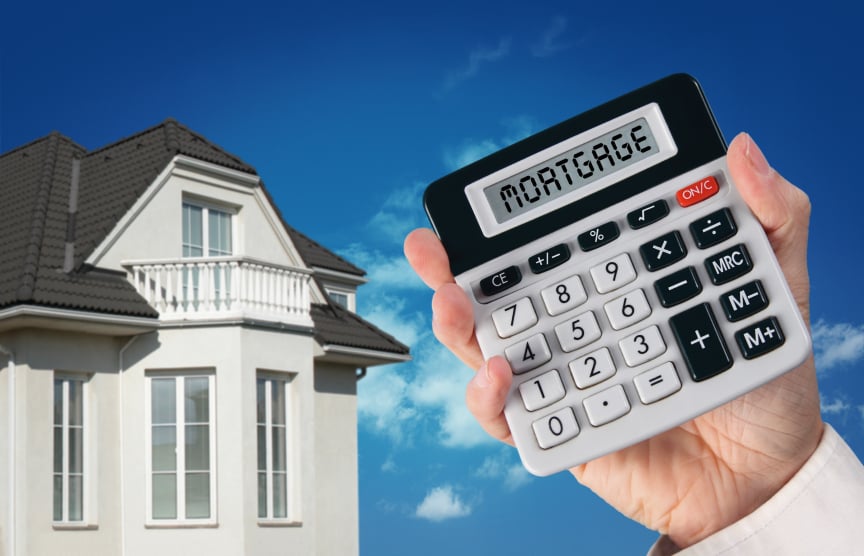Every day, 99.co takes a piece of property jargon and demystifies it. Today, we’ll look into a word that you keep hearing at property seminars or from agents: Decoupling.
What is decoupling?
Decoupling is when one of two co-owners of a house transfers all their shares to the other, thus surrendering ownership completely. This involves one spouse giving up their co-owner status, and becoming an “authorised occupier”.
This can happen for a number of reasons, such as divorce. But there’s another sneaky use for it: avoiding the ABSD. Remember, when buying your second property, you’re subject to a tax of 12% (or even higher if you’re not a Singapore citizen). This is the main deterrent to an investment property.

Here’s how it works: you transfer your share in a property to your partner, leaving them as the sole owner. Since you now don’t own any property, you’re free to buy your second home without having to pay ABSD. On paper, this looks like a win-win situation, and many couples have jumped on the bandwagon and opted to decouple.
But when it comes to decoupling, there’s more to it than meets the eye. More specifically, here are some things to take into consideration.
It’s not just about ABSD, it also impacts your maximum loan and CPF usage
When you have an outstanding home loan, your maximum LTV for a bank loan is 45% of the property price or value (whichever is lower). By decoupling, you could get the usual maximum LTV of 75% when buying your next property.
Then there’s the issue of the CPF. If you already own a house, you need to have enough in your CPF to meet the basic retirement sum, before you can use any excess monies to for another property. You can check your Basic Retirement Sum (BRS) on the CPF website. As most buyers use their CPF for the down payment and the monthly home loans, they’ll want to decouple so they can access as much of heir CPF Ordinary Account (CPF OA) as possible.
But it’s not as simple as “just transferring” your share
Important conditions to watch for include:
- Whether the property is an HDB flat
- The outstanding mortgage
- Return of CPF monies used
- SSD and BSD are still payable
- Legal fees still apply
- Potential for legal complications later
1. Whether the property is an HDB flat
You can’t decouple if the shared property in question is an HDB flat. As of April 2016, HDB only allows decoupling for reasons of death, divorce, marriage, or one partner losing Singapore citizenship.

Decoupling for HDB flats is sometimes allowed for other situations, such as financial emergencies or terminal illness. These cases are reviewed individually (we can guarantee that “I want to buy a second house” won’t be an acceptable reason).
So for the most part, decoupling can only happen if the owned house is private property.
2. The outstanding mortgage
Once decoupling is complete, the person taking over the (formerly) shared property will have to bear the full mortgage alone. Note that this can cause problems later, such as with refinancing.
For example, the TDSR requires that a borrower’s total monthly repayment be 55% of their monthly income or below. It’s possible for two co-borrowers to meet this TDSR requirement; but if one leaves, the income of the remaining borrower may not fall under this limit. This can make it difficult to refinance the loan later.

Also, there’s the simple fact that shouldering a mortgage alone can be tough on one partner.
If you have an outstanding home loan, you’ll need to discharge the loan and obtain a new mortgage from the bank. There are plenty of hidden costs associated with this.
Should you redeem it before the lock-in period ends, you’ll incur a penalty for it. You’ll also have to take into consideration the cost of getting a fresh mortgage.
3. Return of CPF monies used
When you transfer your share of the property to the other co-borrower, you also need to return any CPF monies you’ve used for you house. This is typically the CPF used for the down payment, as well as for any home loan repayments. The amount returned is inclusive of the 2.5% interest that you would have earned.
You can still use your CPF monies for the next house you buy of course; just be aware that you need sufficient cash to put back into your CPF.
4. SSD and BSD are still payable
Transferring a half share to one of the co-owners counts as a “transaction”, and as such, you’ll be incurring the standard Buyer’s Stamp Duty (BSD). On top of this, ABSD is payable on the value of the share transferred if the party who is receiving the half share has more than one property.
| Purchase price or market value of property, whichever is higher | BSD rates for residential property (as of 20 February 2018) |
| First S$180,000 | 1% |
| Next S$180,000 | 2% |
| Next S$640,000 | 3% |
| Remaining amount | 4% |
Let’s say the property you’re transferring costs S$1,200,000, so half a share is S$600,000. Your co-owner will have to pay the BSD of this half share:
(1% ✕ S$180,000) + (2% ✕ S$180,000) + (3% ✕ S$240,000) = S$12,600
If your co-owner is a Singaporean owning a second property, they’ll have to pay the ABSD as well:
(17% ✕ S$600,000) = S$102,000
Also, if you transfer your shares of the property within the first four years, you’re required to pay the Sellers Stamp Duty (SSD).

Note that you cannot artificially lower the BSD by putting a S$1 price on the property, as some misinformed people have claimed. BSD is based on the higher of the property price or valuation.
5. Legal fees still apply
The exact fees will depend on how complex your situation is, and which law firm you go to. Regardless, you should expect to pay legal fees that are upward of S$5,500, all costs factored. You should shop around with different law firms, to see which one is cheaper.
6. Potential for legal complications later
It should go without saying, but remember that you’re giving the entire house to the other co-owner. This can sometimes result in sticky issues. For example, if there’s a big fight and they decide they want to kick you out, well… it’s their house now, you haven’t got any rights to it.

Also, there’s the thorny issue of divorce. If you’ve actually been servicing the entire loan, and your co-owner is a borrower on paper only, you’ve effectively paid for the whole house up to the point of decoupling. But the law won’t see that, when the paperwork shows both co-borrowers are paying their share.
In such a situation, will you be okay with having to split the proceeds, if the house gets sold? That’s kind of a big loss to you, if you actually paid the bulk of it.
7. Gift or sale?
When transferring a property from one spouse to another, you have two options: you can either term it as a gift, or a sale. If you choose to go with a sale, do note that an actual cash transfer has to take place. If it’s a gift, the property may not be marketable for a few years.
Decoupling doesn’t always make financial sense
Always check if the cost and ramifications of decoupling are justified. Sometimes, it might be better just to pay the ABSD and be done with it.
As a general rule of thumb, if you and your partner currently only own one residential property, and your home loan’s lock-in period has expired, you may be able to save some money through decoupling.
However, if you and your partner already own more than one property, and you’ll need to pay a penalty before redeeming your loan, decoupling might not make financial sense.
Be sure to calculate your decoupling costs thoroughly, before you decide to go through with it!
What bits of property jargon would you like to learn more about? Let us know in the comments section below.
The post Property Jargon of the Day: Decoupling appeared first on .

